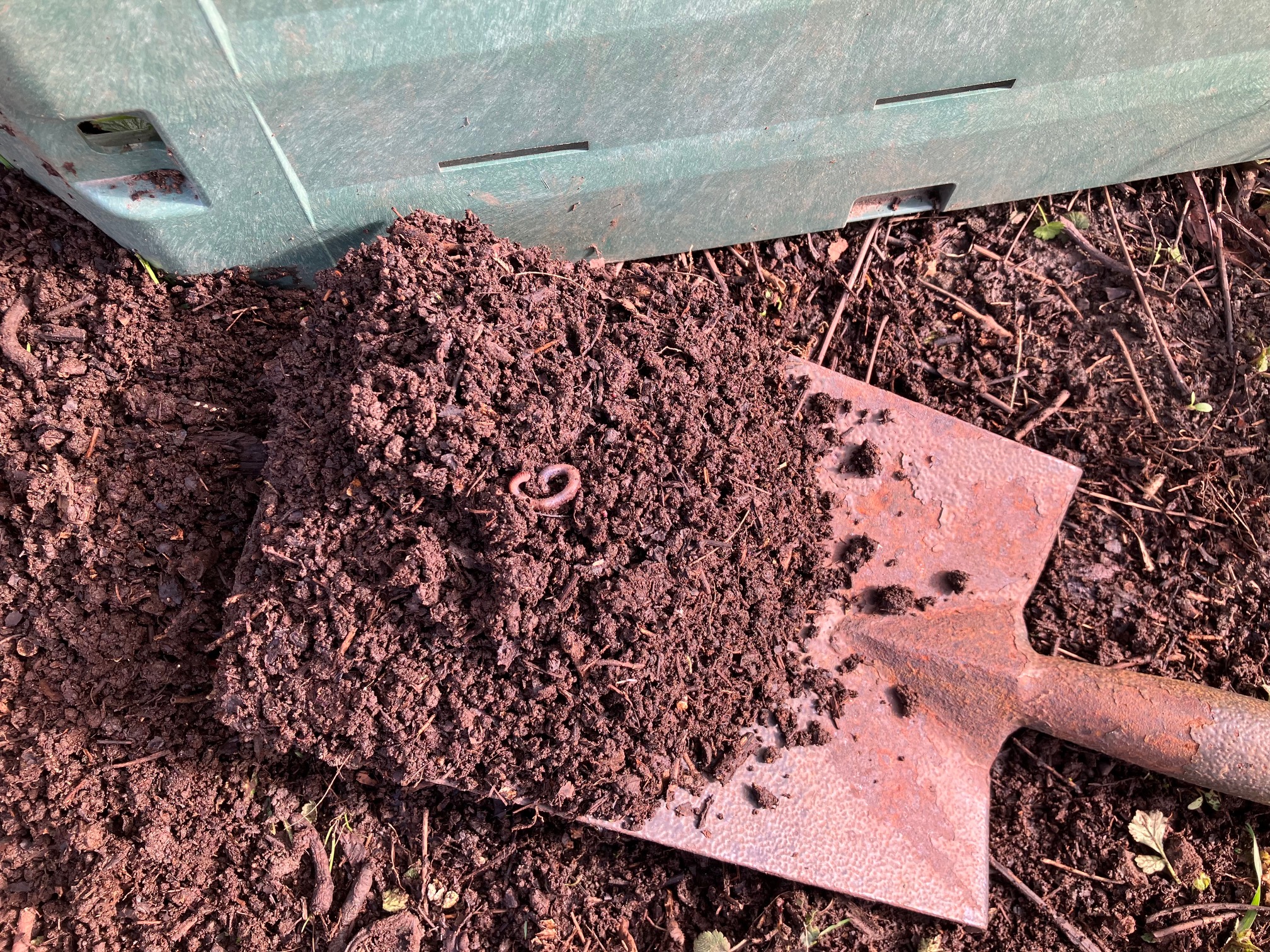When I was a child anything we’d finished with went in the dustbin: food waste got chucked in there along with newspapers, jam jars, tin cans, broken toys, cigarette butts, whatever. Some of the rubbish may still be there, in a landfill site somewhere in West Yorkshire, rotting away having been dumped in 1972.
Back then we didn’t give a second’s thought to what happened to rubbish. All we knew was that the binmen came on a Monday morning to take it Away. We didn’t know where Away was; as long as it was Away from us we didn’t really care.
Now we know – and we care. ‘Away’ was to landfill, where it rotted, releasing methane, a greenhouse gas 25 times more potent than carbon dioxide. We didn’t know it then, but we were contributing to global warming and the climate crisis we know today. Once you know, you can’t un-know…suddenly it’s not so easy to just chuck your apple core in any old bin.
What about compost?
But while everyone now knows about the negative impact of landfill waste on the environment, not as much is widely known about the positive solutions offered by compost.
To many people the word compost conjures up images of old men in wellies pottering about on allotments like characters from Last of the Summer Wine. Or eccentric city types escaping the rat race, like Tom and Barbara in The Good Life. It sounds cosy, quaint, grandadish, nowhere near as important as it really is. Perhaps it needs a marketing rebrand and new name – soil medicine, perhaps, or earth regeneration booster. Anything to bring it in off the allotment and into the mainstream.
Why is compost – sorry, soil medicine – so great?
Around a third of the average UK household’s waste is biodegradable and could be composted. It’s a no-brainer when you consider the many benefits.
Compost:
- boosts soil quality
- prevents soil erosion
- improves soil drainage
- absorbs water (slowly releasing it to grass and plants)
- improves plant productivity and quality
- helps soil to capture carbon from the air and pull it back into the ground.
That last point is particularly impressive – compost actually helps to capture carbon from the air and pull it back into the ground, right where we want it, mitigating climate change.
So if you have one of the UK’s 15 million gardens you have access to a small patch of the earth that makes up this planet. Nurture it and you nurture the planet.
There is now such a wide variety of composters to suit every home and lifestyle (see Blog – At a Glance – Which Composter?) it’s never been easier to get the composting habit.
But whatever form of composter you choose – hot composter, food waste digester, compost tumbler or traditional garden compost bin – you are doing your bit. If you have no space for a garden composter you could try small-scale composting with a Bokashi bin or wormery (fascinating educational projects for children, the next generation of composters). Even if you don’t compost you could consider donating your food waste to people who do, via the ShareWaste app.
As the saying goes: It is the greatest of all mistakes to do nothing because you can do only a little.
If the little that you can do is change which bin you throw your leftovers in, that’s actually a lot.
As Jen Gale says in her book The Sustainable(ish) Living Guide: ‘There are ways to fit sustainable living into the life you lead. To change your impact without radically changing your life.’
Basically, composting is about changing the bin you throw your waste in. Depending on the bin you choose (or even making your own heap) it can be as small or as a big a change as you want it to be, as simple or as complex depending on your level of interest. Who knows, one day you might even be out there in wellies on an allotment!
A win-win solution to climate change
Your composting efforts, no matter how small, are part of a global crusade. An alliance was formed in 2021 to spread the composting message on the world stage. On December 5th – World Soil Day – the International Compost Alliance was launched, uniting composting associations from the UK, Ireland, Europe, North America and Australasia.
The Alliance’s aim is to ensure that compost and its role in soil health and food security is central to global efforts in tackling climate change. It plans to raise awareness of the essential role that compost plays in boosting soil health, improving crop productivity and water quality as well as supporting biodiversity and preserving natural resources.
In a joint statement the Alliance said: ‘Despite organics recycling being an affordable and proven solution to the climate mitigation and methane emission reduction goals, it remains an underutilised and undervalued technology. … Compost is a win-win solution to climate change – not only does recycling organic wastes reduce emissions, compost also brings many benefits when used on soils too.’
According to the charity Garden Organic, the health of the earth’s soils is fundamental to life as we know it, yet half the planet’s topsoil has been lost in the last 150 years. The charity urges people to take simple steps to redress this in their own gardens by regularly topping up beds with compost and ensuring soils are not left bare without vegetation cover.
This is one fight we’re all in together.
So, change the bin you throw your scraps in – and start saving the earth today.
Julie



